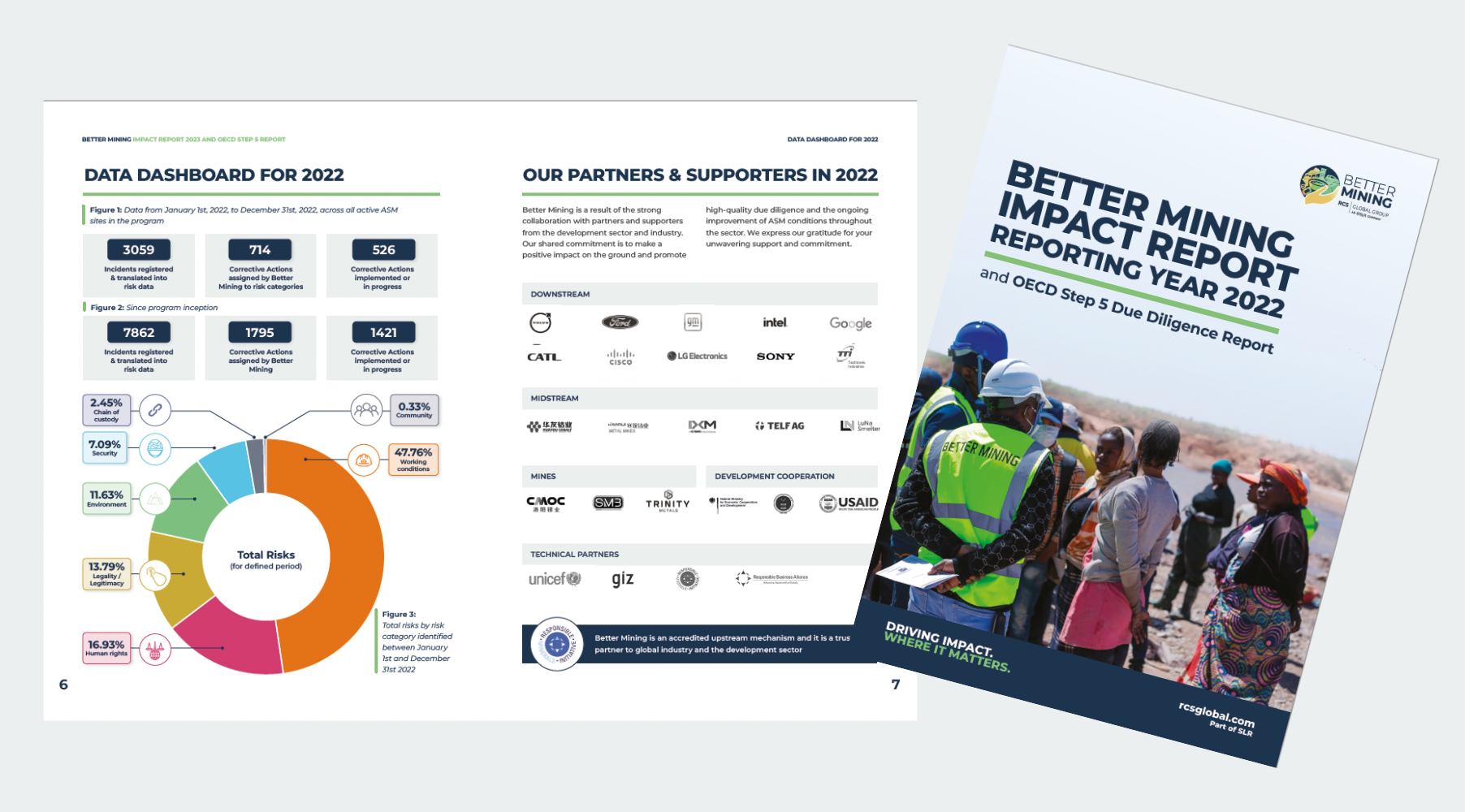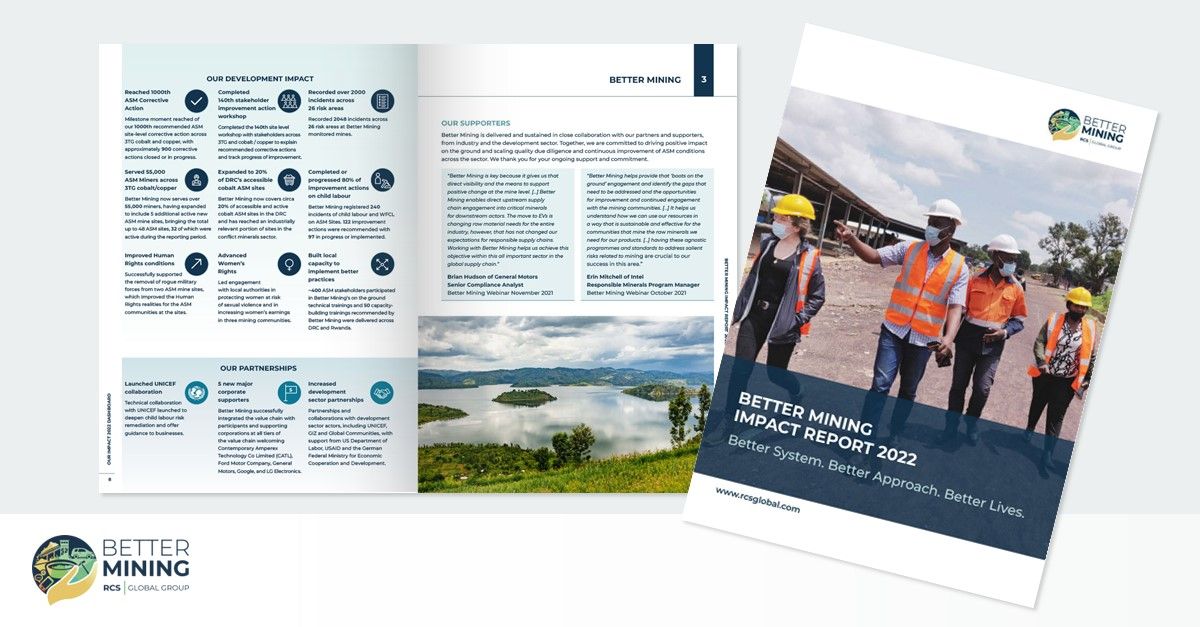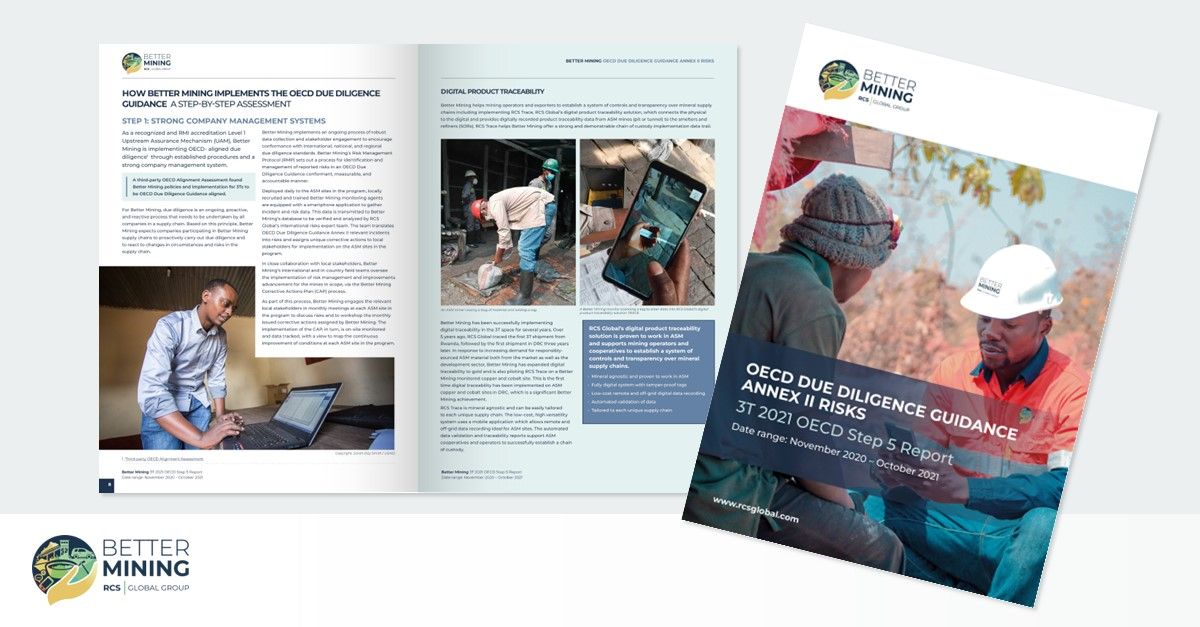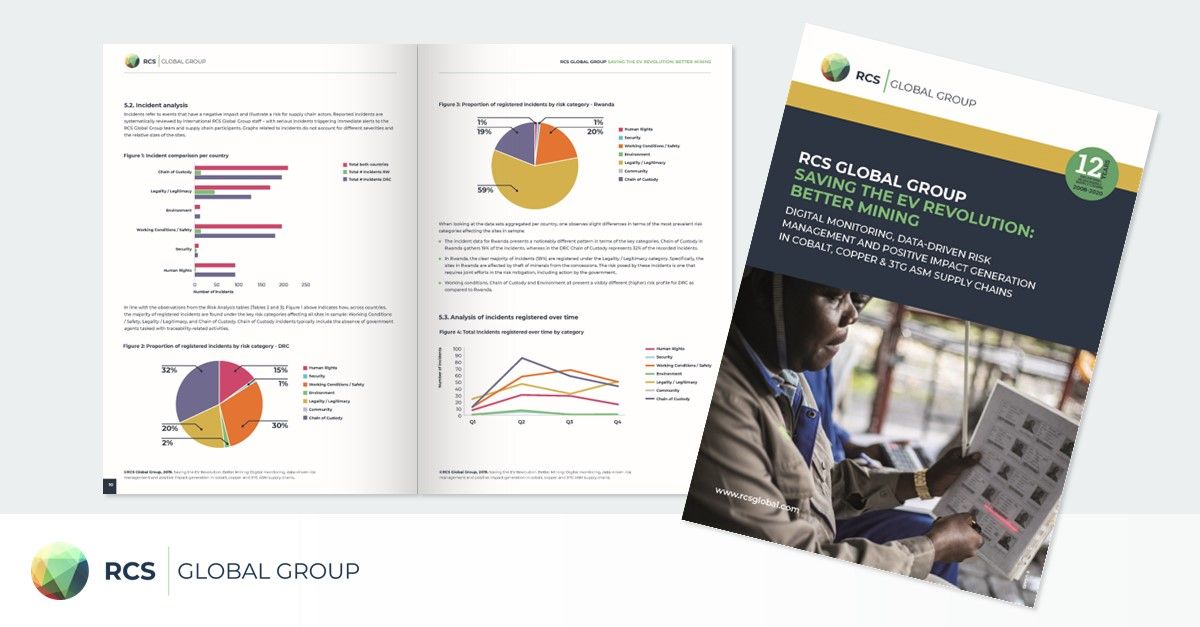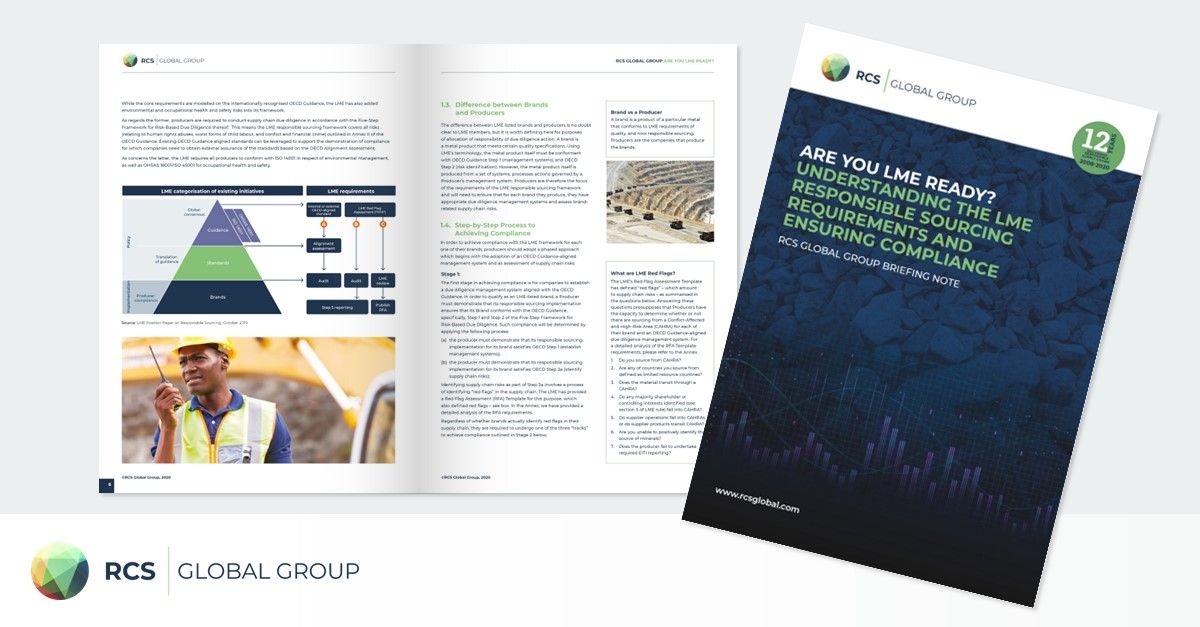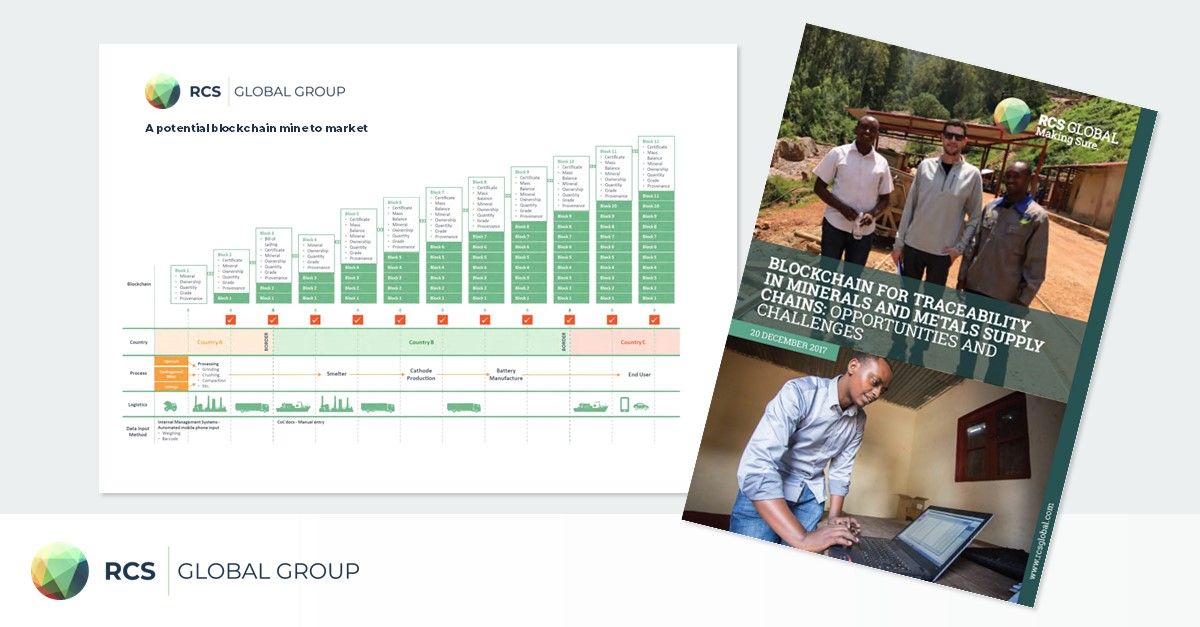Commentary:
EU Battery Passport: Navigating Interoperability and Data Security
18 April, 2024
The European Union’s Battery Regulation represents a significant policy shift, addressing the entire lifecycle of batteries, from production and use to disposal and recycling. A key aspect of this legislation is the introduction of a digital battery passport, the first of its kind, designed to ensure transparency in battery manufacturing and usage. The initiative, launched in alignment with the transition towards low-carbon transportation and Electric Vehicles (EVs), aims to steer away from irresponsible mining practices, promote sustainability, and set a new standard for battery production and disposal.
The implementation of digital battery passport systems offers solutions to challenges in battery raw material (BRM) supply chains. RCS Global provides a comprehensive digital solution for BRM, enabling stakeholders to trace environmental and social impacts, collect validated sourcing data, and mitigate risks. Spherity, a leader in digital identity and wallet technology, joins RCS Global in this endeavour, bringing expertise in ecosystems and verified credentials to enable interoperability and secure data management. As the industry transitions towards digitalisation and standardisation, the focus now centres on ensuring interoperability among various digital battery passport systems to foster seamless data exchange.
Effective on August 17, 2023, the new EU Battery Regulation establishes sustainability and safety requirements for batteries, simultaneously imposing due diligence and reporting obligations on companies introducing batteries to the EU market.
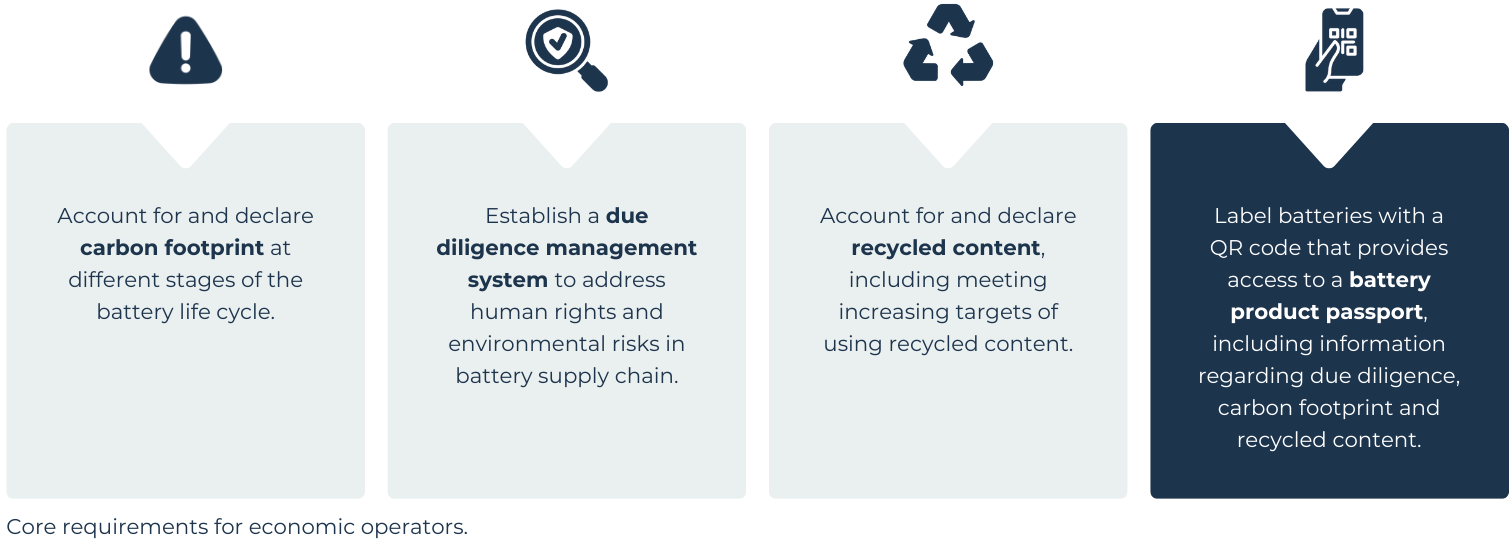
Interoperability for a Battery Passport System: A Gateway to Enhanced Efficiency
A battery system is not only designed to create a battery passport but is also needed to track and manage the lifecycle of batteries. Its success depends on the interoperability and seamless interaction between platforms, protocols, and data formats, representing the ability of different systems, devices, or applications to communicate and exchange data effectively.
In the Battery Passport system, this translates to the sharing of data across various stakeholders in the battery lifecycle – from manufacturers to recyclers. Given the globalised nature of battery value chains, interoperability is crucial for standardised traceability and transparency. The principles of interoperability involve standardised data formats, communication protocols, and shared interfaces, which can reduce manual data translation and communication errors. This streamlined process accelerates battery lifecycle management and cuts costs.
Various global organisations, such as the Global Battery Alliance (GBA), Catena/Cofinity-X, Mobi and Ouranos, define standards and exchange methods for interoperability. Collaboration among these ecosystems is key to success. Additionally, ensuring interoperability with the Battery Pass Content Guidelines, the Energy & Mines Digital Trust Ecosystem, and EU standards for the Battery Passport is essential for enhancing transparency and fostering trust within the supply chain ecosystem.
Confidentiality and Data Security in the Complex Global Supply Chain Data Landscape
While interoperability brings numerous benefits, it also raises concerns regarding data security and privacy. Since the economic operator has the responsibility to share all relevant information acquired and preserved under its battery due diligence policy with its immediate downstream purchasers to comply with the EU Battery Regulation, a battery passport must be designed to preserve data confidentiality while facilitating safe information sharing to maintain business integrity and competitive positioning. Additionally, data validation mechanisms need to be introduced to verify the accuracy and reliability of the provided data.
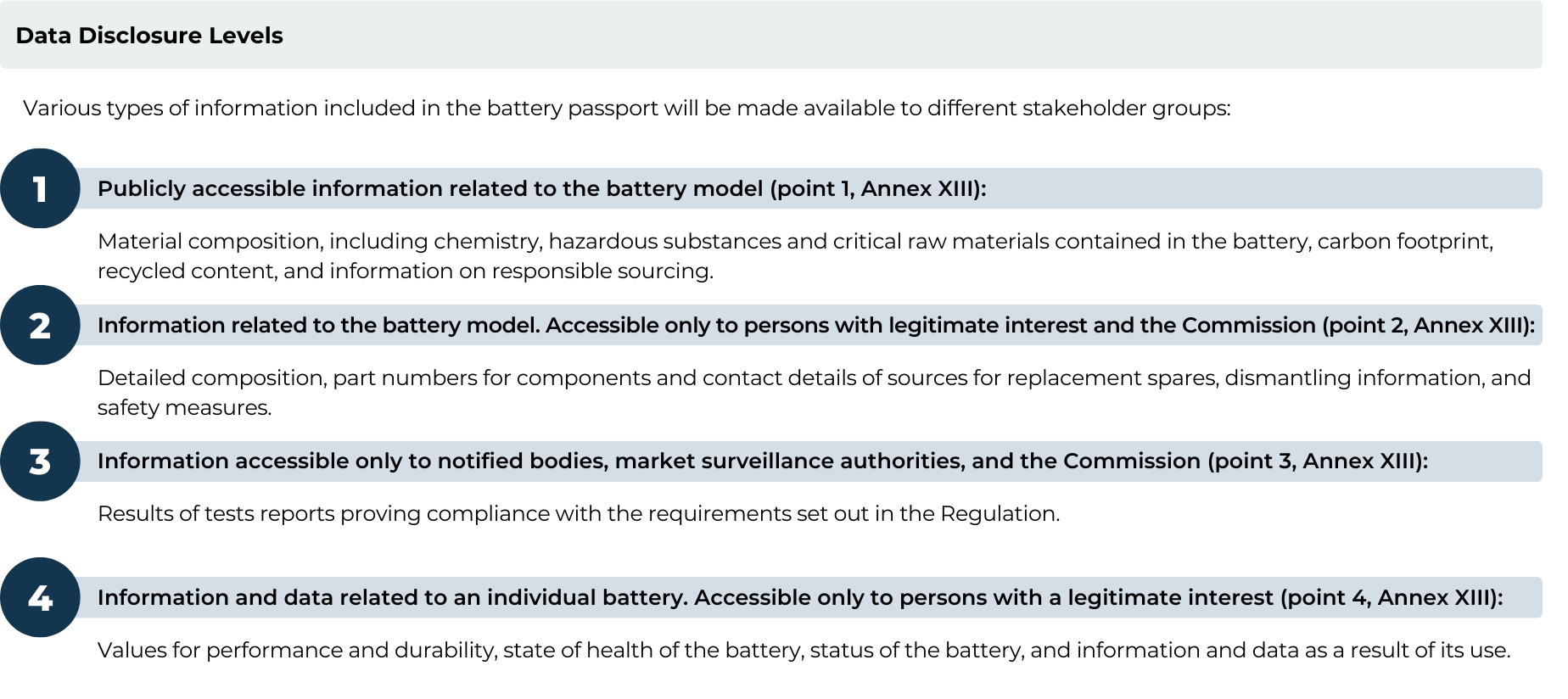
The experience gained from developing Battery Passport pilots and proof of concept has conditioned our understanding for the need for differentiated disclosure levels, rewarding transparent supply chain actors, but also enabling suppliers to control disclosures and increasing participation in supply chain traceability systems. It’s critical to ensure that all newly shared supply chain data and information are linked to the unique identifier of the issuer and digitally signed by the issuer, enabling traceability of data source and time while safeguarding against tampering and ensuring non-repudiation.
One way of achieving this is through Self-Sovereign Identity (SSI) and Digital Wallet Technology, which facilitate access to data by different stakeholders, with access levels determined by role-based controls. This allows access levels to be specified to a granular degree, enabling authorised users to receive data that meets their specific needs, provided the data owner allows it. To ensure verifiability, Battery Passport data is signed using a decentralised public key infrastructure, enabling verification of the signature and data issuer. Furthermore, there is an option to share no specific data at all by utilising Zero Knowledge Proofs. The access levels mean that the same Battery Passport can be used to provide access to public disclosures, data owners or participant regulators.
Additionally, Digital Wallet Technology offers secure storage and management of digital assets, enabling easy addition of data and certificates, including those relevant to US regulations. It facilitates semantic and cryptographic verification of certificates and claims, ensuring data integrity.
What do Interoperability and Data Security look like in practice?
Claritas, the RCS Global Battery Passport Solution, is a significant step forward in creating a sustainable and transparent battery supply chain.
Designed to meet evolving regulations, Claritas functions as both a database and a data exchange system. It employs centralised and decentralised governance for security and adaptability. At its core, Spherity’s digital Wallet and Self-Sovereign Identity technology ensure secure identity management for BRM suppliers. Our Wallet technology is built on open standards and a cloud solution with robust APIs, enabling the interoperability and scaling of the platform. As the platform evolves, participating value chain entities will increasingly be required to cover the costs of their own assessments, reducing the cost burden for downstream companies.
In addition to APIs, Claritas utilises a secure and open protocol for exchanging data. It enables two parties to establish an encrypted connection between their cloud wallets and exchange data without the need for an intermediary. This method greatly benefits scalability as it offers a consistent approach for expanding networks. It eliminates the need to create specific data access points and user accounts for every new entity in a supply chain, significantly reducing the need for bilateral integrations. This allows for secure, ad-hoc connections to supply chain partners, thus potentially reducing costs for integrating with new partners in the future. Data is stored in a decentralised manner, and supply chain partners retain sovereignty over their data.
About Claritas
Claritas is a comprehensive real-world and a digital solution specifically designed for BRM, enabling traceability and the collection of validated responsible sourcing and Carbon Footprint data. Claritas covers the entire battery supply chain, seamlessly integrating different approaches such as tracing and tracking. It ensures interoperability while providing accurate and verified information on responsible sourcing practices and carbon footprint throughout the entire lifecycle of Battery Raw Materials, from mine to market.
To learn more about Claritas battery passport solution, please visit:
About Spherity
Spherity is a pioneer in decentralised identity and data sovereignty solutions. Their innovative technology focuses on solutions for industry use cases, that automate processes by digitising company or product certificates and the exchange of sensitive industry data. Spherity is offering solutions for the US Pharma Industry, the global automotive industry, and has a special focus on Digital Product Passport Solutions for all ESPR-regulated product categories.
To learn more about Spherity and their digital wallet solutions, please visit:
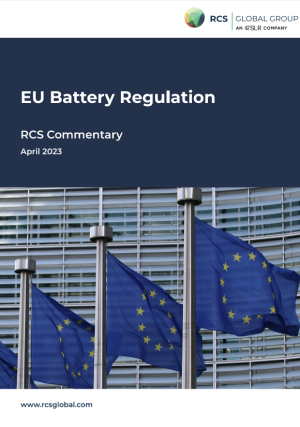
Want to learn more about the EU Battery Regulation? Access RCS Global’s 20-page analysis and commentary written by our responsible sourcing experts.



